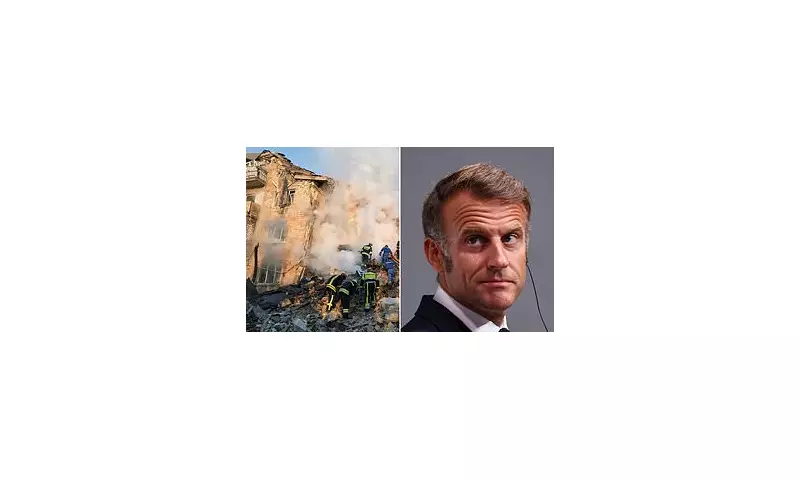
European leaders are rallying for a severe and immediate tightening of sanctions against the Kremlin in response to a horrific missile barrage on Ukraine's capital, which targeted a children's hospital in a brutal daytime assault.
The call for action was spearheaded by UK Foreign Secretary David Cameron, who labelled the strike on Kyiv as a despicable war crime. The attack resulted in a tragic loss of life, with at least 31 fatalities reported and dozens more injured, many of whom were patients and medical staff.
Outrage at the NATO Summit
The assault cast a dark shadow over the ongoing NATO summit in Washington, where world leaders gathered. The incident immediately shifted the agenda, forcing urgent discussions on how to bolster Ukraine's defences and further isolate Russia economically and politically.
Lord Cameron stated unequivocally that the UK would press its allies for a robust package of new sanctions aimed at crippling Putin's war machine. He emphasised that such barbaric attacks only strengthen the resolve of the West to support Ukraine for as long as it takes.
A Scene of Horror in Kyiv
Images and videos from the scene depicted a landscape of utter devastation. The Okhmatdyt children's hospital, one of Ukraine's most important paediatric centres, was left with its windows blown out and its walls scarred by the impact. Parents and doctors were seen frantically digging through the rubble in a desperate search for survivors.
Ukrainian President Volodymyr Zelensky delivered an emotional address, pleading with Western nations for more advanced air defence systems to protect his country's cities from such atrocities. He accused Russia of blatant terrorism and called for global solidarity.
The Path Forward: More Sanctions and Military Aid
The widespread condemnation from European capitals signals a unified front. The proposed new sanctions are expected to target key sectors of the Russian economy that have so far avoided the full brunt of Western measures, further restricting its ability to finance the war.
This event is seen as a potential turning point, galvanising support for Ukraine at a critical moment in the conflict. The response from the NATO summit will be closely watched as a measure of the West's continued commitment to opposing Russian aggression.





